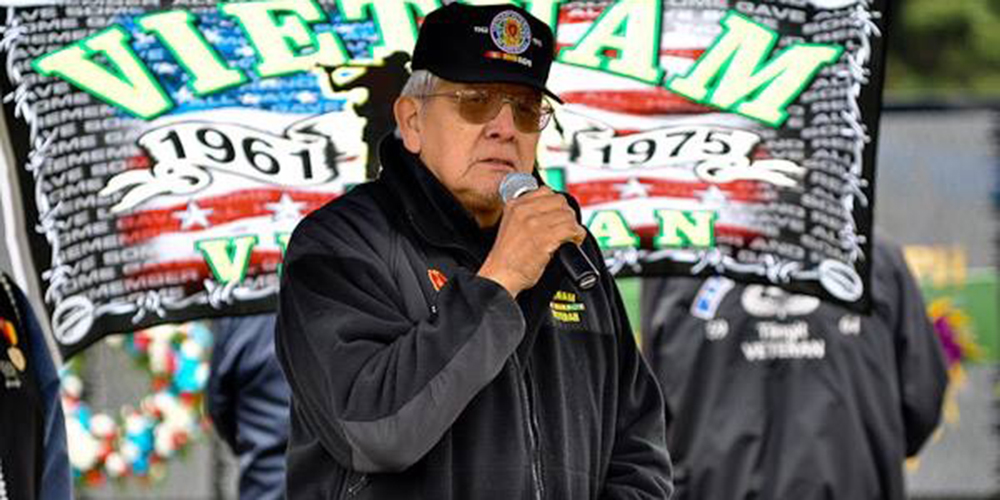When Army Veteran George Bennett left his hometown of Sitka, Alaska, he didn’t know what was next. He certainly didn’t know he would return to Sitka on his long journey toward self-fulfillment. Looking back, he realizes how his experiences equipped him to advocate for VA virtual health care to his fellow Veterans in the nation’s last frontier.
Bennett (pictured above) was drafted into the Army in 1966 and served at Cam Ranh Bay in Vietnam.
As a member of the Native American Tlingit tribe of southeast Alaska, Bennett knew the color of his skin set him apart. This difference that was a wedge between him and his fellow troops served as an asset to his relationships with the locals who could see that Bennett was different from the others.
“I never saw them as the enemy,” Bennett said of the Vietnamese children who approached him while he was on guard duty on the Saigon River. “I respected them because they were indigenous to the land. From my own experience, I know how I should treat them.” He gave them candy and told them stories about Alaska and his culture. “We became good friends.”
He didn’t know it then but building connections with others through his culture would be a key part of his path to healing after the war.
The long road home
Bennett moved around and eventually got married, but he didn’t tell anyone – even his wife, Mary – that he was a Vietnam Veteran. He also distanced himself from his tribe and his culture because he felt ashamed about walking away from them in the first place.
When he started experiencing PTSD symptoms, Bennett finally told his wife about his time in Vietnam. He had problems with alcohol and began attending Alcoholics Anonymous meetings.
At one AA meeting, Bennett met a former corporal who is a Native American elder from a different tribe. “I told him I felt ashamed for leaving my own culture and embracing another. He said, ‘You’re empty inside. You need to find ways to fulfill yourself again.’ And it couldn’t have been more true.”
The advice motivated Bennett and his wife to return to Sitka in 1998. He began meeting fellow tribe members, attending traditional parties and speaking Tlingit again.
Through this personal journey, Bennett also became more invested in helping his fellow Veterans. As a VA volunteer he learned about the health benefits Veterans can access.
Today, he’s a liaison to Veterans in rural areas with the Alaska VA Healthcare System.
Bennett is the one advising other Veterans on how to take care of themselves and connect with community resources. His favorite tool to recommend to Veterans is My HealtheVet, VA’s online patient portal.
Fulfillment in service to others
In his role as a liaison to Veterans in rural areas, Bennett helps introduce fellow Veterans to the platform. Veterans can use the program to refill VA prescriptions online, download their VA health records, communicate with VA staff and schedule VA appointments.
As Alaska’s only liaison to Veterans in rural areas, Bennett’s work is crucial to the 715 Veterans who live in Sitka, and the 71,000 Veterans across the state.
Bennett feels fulfilled after his long journey back home. “I started making more positive things come into my life. I’m becoming the person I should be.”
Treva Lutes is a program specialist for communications for the VHA Office of Connected Care.
Topics in this story
More Stories
Watch the Under Secretary for Health and a panel of experts discuss VA Health Connect tele-emergency care.
The 2024 National Veteran Suicide Prevention Annual Report provides the foundation for VA’s suicide prevention programs and initiatives.
Theranostics is a specialized field of nuclear medicine that uses a two-pronged approach to diagnose and treat cancer.








